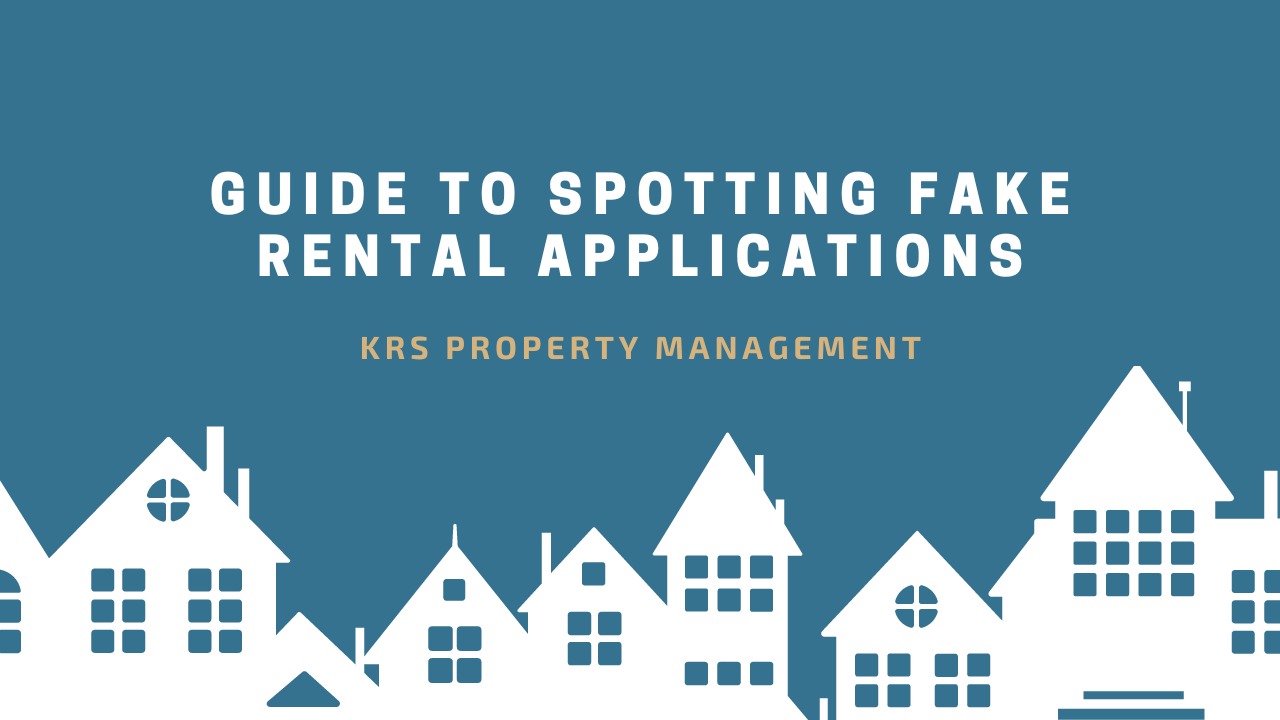
As a landlord, ensuring you have trustworthy and welcomed tenants is crucial for the smooth operation of your rental property. Unfortunately, not all applications are genuine, and spotting a fake one can be challenging. At KRS Holdings, we’ve seen it all, and we’re here to share our expertise on identifying fraudulent rental applications.
Our team understands the common tactics used by scammers and can help you navigate the red flags. From inconsistent information and overly eager applicants to fabricated job details, we provide thorough screening processes to protect new or old investment.
Here's your guide to protecting your property and investments from deceptive applicants.
1. Inconsistent Information
One of the first red flags is inconsistencies in the application. Carefully compare all the information provided. Look for mismatched details such as:
Different names on various documents.
Conflicting employment histories or job titles.
Inconsistent addresses across references and previous residences.
Discrepancies in dates of employment or gaps in the work history that are not explained.
Mismatched contact information, such as phone numbers or email addresses, that don't align with the provided references or past employers.
2. Suspicious Employment Information
Verifying employment is crucial, but fake applications often include fabricated job details. To spot these:
Check for generic company names that are hard to verify.

Contact the employer directly using a verified phone number, not the one provided by the applicant.
Look for discrepancies in job titles or duties that don’t match typical roles within the stated industry.
Additionally, search online for the company's business listings and reviews to ensure its legitimacy. Requesting recent pay stubs or tax documents can provide further proof of employment. If possible, arrange a call or meeting with a supervisor to confirm the applicant's position and responsibilities.
3. Unverifiable References
Fake applications may include references from friends posing as previous landlords or employers. To uncover these:
Cross-check the reference’s contact information with public records or online databases.
Ask specific questions about the applicant’s rental history that only a genuine landlord would know.
Be wary of references that are overly enthusiastic or vague.
4. Suspicious Income Statements
Income verification is another area where applicants might provide false information. Look out for:
Pay stubs that appear to be homemade or have inconsistent formatting.
Bank statements with unclear or altered figures.
W-2 forms or tax returns that lack standard elements such as employer identification numbers.
5. Too Good to Be True
Be cautious if an applicant offers to pay several months' rent upfront or presents an unusually high security deposit. While it may seem beneficial, it could be a tactic to distract from a flawed application. Always ensure the rest of the application is thoroughly vetted.

This type of offer can sometimes indicate desperation or an attempt to bypass standard screening procedures. Verify the applicant's credit history, employment status, and references to ensure there are no hidden issues.
6. Rapid Application Process
Scammers often want to expedite the process to avoid detailed scrutiny. Be cautious if:
The applicant pushes for a quick move-in date.
They avoid providing additional documentation when requested.
They seem unwilling to answer detailed questions or offer clarifications.
Additionally, be wary if the applicant is overly agreeable or avoids negotiating terms, as this can be a sign they are trying to quickly secure a lease without drawing attention to potential issues. They might also show unusual urgency, pushing you to skip background checks or finalize the lease late at night or on weekends.
Trust your instincts and take the necessary time to conduct a thorough review of their application.
7. Conduct a Background Check
Always perform comprehensive background checks. Look for:
Criminal records that might indicate a history of fraudulent activity.
Previous eviction records.
Credit reports that show a pattern of delinquency or mismatched information.
8. Verify Identity
Ensuring the applicant's identity is genuine is crucial. Steps include:
Requesting a government-issued ID and confirming its validity.
Cross-referencing the ID with other documents provided.
Using online tools to verify identity information.

Additionally, consider conducting a video call interview to match the applicant's face with their ID. Checking social media profiles can also provide an extra layer of confirmation.
9. Use Professional Services
Consider partnering with a professional property management service like KRS Holdings. We have the experience and resources to conduct thorough background checks, verify information, and ensure you have reliable and happy tenants. Our expertise in identifying and mitigating risks can save you time and protect your investment.
Conclusion
At KRS Holdings, we understand the challenges landlords face in finding trustworthy tenants. By following these guidelines, you can reduce the risk of falling victim to fake rental applications. Our team is here to support you every step of the way, ensuring your property management process is seamless and secure. For more information on our services and how we can help you, contact us today.
Ensuring you have genuine tenants is not just about protecting your property; it’s about securing your peace of mind. Let KRS Holdings be your partner in achieving your relaxation.






